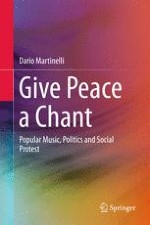2017 | OriginalPaper | Buchkapitel
6. Case Study 2: The Lithuanian Singing Revolution and the Case of Antis
verfasst von : Dario Martinelli
Erschienen in: Give Peace a Chant
Aktivieren Sie unsere intelligente Suche, um passende Fachinhalte oder Patente zu finden.
Wählen Sie Textabschnitte aus um mit Künstlicher Intelligenz passenden Patente zu finden. powered by
Markieren Sie Textabschnitte, um KI-gestützt weitere passende Inhalte zu finden. powered by
